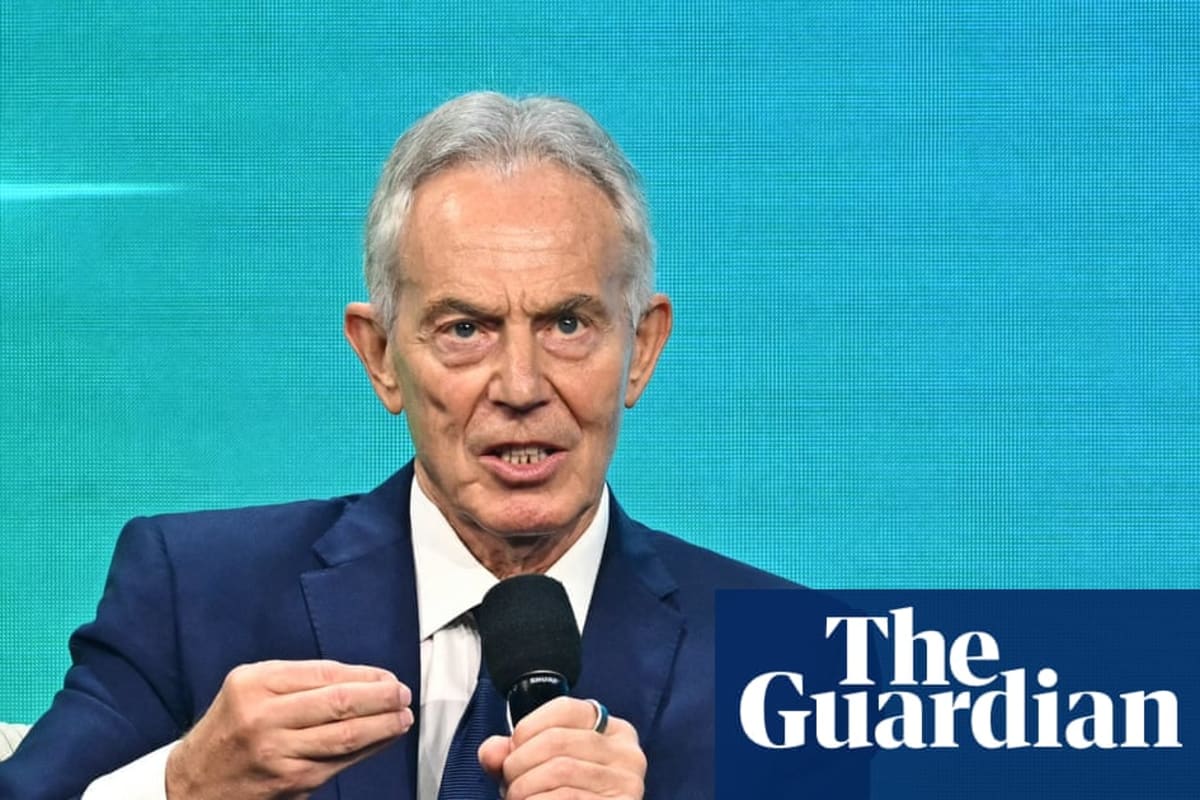Blair's Mideast Return: Palestinians Excluded from Post-War Plans?

Tony Blair's Middle East Return Sparks Debate on Palestinian Inclusion Tony Blair's renewed involvement in Middle Eastern politics has reignited a crucial debate about the region's future, particularly the persistent marginalization of Palestinians in post-conflict planning A recent article in The Guardian underscores this concern, highlighting the stark contrast between Blair's ambitious vision for the region and the limited agency afforded to Palestinians in shaping their own destiny This raises fundamental questions about the pursuit of equitable and sustainable solutions, as well as the ethical responsibility of international actors in fostering lasting peace and stability Blair's return to the forefront of Middle Eastern affairs is fraught with complexity, given his controversial legacy as Prime Minister of the United Kingdom His decision to invade Iraq in 2003, a move widely condemned for its devastating consequences, casts a long shadow on his current endeavors The article rightfully points out the immense human cost of the Iraq War, with estimates suggesting over a million lives lost and the subsequent rise of ISIS, a direct consequence of the instability unleashed by the invasion This serves as a stark reminder of the potential for even well-intentioned interventions to inadvertently exacerbate existing problems and create new ones The juxtaposition of Blair's prominent role with the conspicuous absence of meaningful Palestinian participation in post-conflict planning underscores a critical flaw in many international peace initiatives: genuine and lasting peace cannot be achieved without centering the voices and agency of those most directly affected by the conflict Systematically ignoring Palestinian perspectives only perpetuates the cycle of violence and undermines any genuine hope for a sustainable and equitable resolution This raises serious concerns about the potential for repeating past mistakes and overlooking the crucial need for inclusive and participatory peacebuilding efforts that prioritize the needs and aspirations of the Palestinian people For readers in Southeast Asia, this issue resonates deeply with the region's own experiences with conflict and the hard-won lessons learned about the importance of inclusive approaches to peace and reconciliation Many Southeast Asian nations have navigated complex internal conflicts and the arduous challenges of post-conflict reconstruction, emphasizing the imperative for equitable solutions that prioritize the well-being and agency of all affected communities, regardless of ethnicity, religion, or political affiliation The article's focus on Palestinian exclusion serves as a cautionary tale against overlooking the vital importance of local participation and ownership in any peacebuilding initiative, highlighting the potential pitfalls of imposing externally driven solutions that fail to address the root causes of conflict Beyond the Middle East, the article provides a broader global context, touching upon several pressing international issues The ongoing conflict in Ukraine, a brutal war of aggression that has destabilized Europe and displaced millions, the precarious situation surrounding Iran's nuclear program, and the alarming potential collapse of the Atlantic Meridional Overturning Circulation (AMOC), a critical ocean current that regulates global climate patterns, all underscore the interconnectedness of global events and the urgent need for international cooperation to address shared challenges These developments, particularly the devastating consequences of unchecked aggression in Ukraine, highlight the urgent need for diplomatic solutions and a renewed commitment to international law and the peaceful resolution of disputes Even seemingly unrelated domestic policy decisions, such as the proposed tax on landlords in the UK, reveal a broader global trend toward addressing economic inequalities and promoting more equitable policies This connects directly to the core issue of Palestinian marginalization, as equitable resource distribution and economic opportunity are fundamental prerequisites for resolving conflict and achieving lasting peace Similarly, the internal political struggles within the United States, as evidenced by recent leadership changes at the Centers for Disease Control and Prevention (CDC), further highlight the challenges of effective governance and decisive decision-making in times of uncertainty and heightened political polarization These internal challenges can impact a nation’s ability to engage constructively on the global stage and contribute effectively to international peace and security efforts In conclusion, the article serves as a critical reminder of the paramount importance of inclusive peacebuilding processes, the long-term consequences of past military interventions, and the urgent need for sustained global cooperation to address interconnected challenges The persistent lack of Palestinian agency in shaping their own future serves as a powerful cautionary tale that should resonate with audiences worldwide, including in Southeast Asia, where the imperative for equitable and locally-led solutions to conflict remains a paramount concern Only by prioritizing inclusivity, justice, and the voices of those most affected can we hope to build a more peaceful and sustainable future for all
